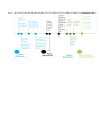Implementing Joint External Evaluations of the International Health Regulations (2005) capacities in all countries in the WHO African region: process challenges, lessons learnt and perspectives for the future
- PMID: 37802545
- PMCID: PMC10565161
- DOI: 10.1136/bmjgh-2023-013326
Implementing Joint External Evaluations of the International Health Regulations (2005) capacities in all countries in the WHO African region: process challenges, lessons learnt and perspectives for the future
Abstract
Following the West Africa Ebola virus disease outbreak (2013-2016), the Joint External Evaluation (JEE) is one of the three voluntary components recommended by the WHO for evaluating the International Health Regulations (2005) capacities in countries. Here, we share experience implementing JEEs in all 47 countries in the WHO African region. In February 2016, the United Republic of Tanzania (Mainland) was the first country globally to conduct a JEE. By April 2022, JEEs had been conducted in all 47 countries plus in the island of Zanzibar. A total of 360 subject matter experts (SMEs) from 88 organisations were deployed 607 times. Despite availability of guidelines, the process had to be contextualised while avoiding jeopardising the quality and integrity of the findings. Key challenges were: inadequate understanding of the process by in-country counterparts; competing country priorities; limited time for validating subnational capacities; insufficient availability of SMEs for biosafety and biosecurity, antimicrobial resistance, points of entry, chemical events and radio-nuclear emergencies; and inadequate financing to fill gaps identified. Key points learnt were: importance of country leadership and ownership; conducting orientation workshops before the self-assessment; availability of an external JEE expert to support the self-assessment; the skills, attitudes and leadership competencies of the team lead; identifying national experts as SMEs for future JEEs to promote capacity building and experience sharing; the centrality of involving One Health stakeholders from the beginning to the end of the process; and the need for dedicated staff for planning, coordination, implementation and timely report writing. Moving forward, it is essential to draw from this learning to plan future JEEs. Finally, predictable financing is needed immediately to fill gaps identified.
Keywords: Health systems evaluation; Public Health.
© World Health Organization 2023. Licensee BMJ.
Conflict of interest statement
Competing interests: None declared.
Figures
References
-
- World Health Organisation . International Health Regulations (1969): adopted by the Twenty-second World Health Assembly in 1969 and amended by the Twenty-sixth World Health Assembly in 1973 and the Thirty-fourth World Health Assembly in 1981 3rd annotated ed, Available: https://apps.who.int/iris/handle/10665/96616
-
- World Health Organisation . International health regulations.Third Edition,. 2005Available: https://www.who.int/publications/i/item/9789241580496)
-
- World Health Organisation . International health regulations-update on the revised version. 2004. Available: https://applications.emro.who.int/docs/em_rc51_6_en.pdf)
-
- World health Organisation. Building Health Security Beyond Ebola, Report of a High-Level Meeting, Cape Town July 13-15, 2015; Available: https://apps.who.int/iris/rest/bitstreams/1061123/retrieve
-
- World Health Organization . International Health Regulations (2005) Monitoring and evaluation Framework. Strategic Partnership for International Health Regulations (2005) and Health Security (SPH), Available: https://extranet.who.int/sph/ihr-monitoring-evaluation
Publication types
MeSH terms
Grants and funding
LinkOut - more resources
Full Text Sources
Medical
Miscellaneous


